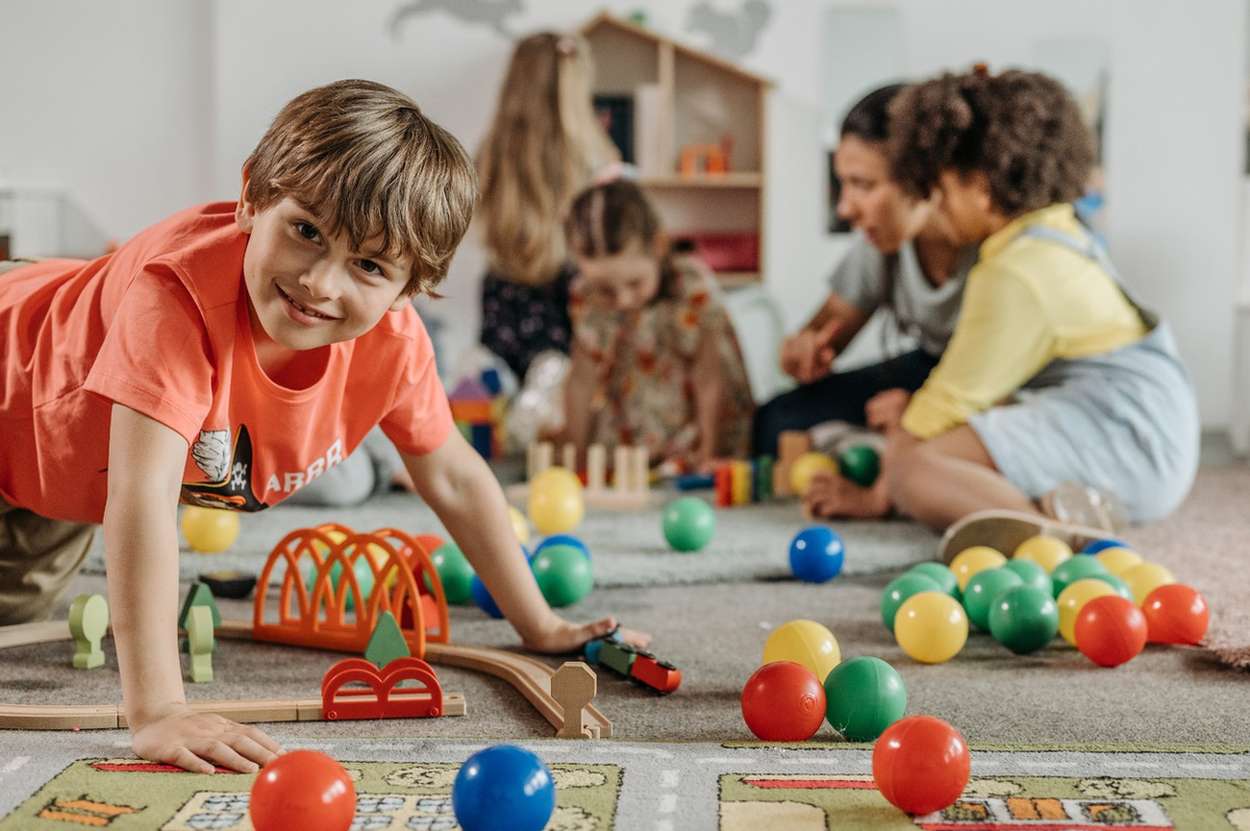Let me share with you a little story from my personal experience, A Toy Story. I remember when my little one was just starting to explore with toys. It was amazing to watch their curiosity and imagination grow!
Playing with toys was such a happy time for my child and me. It was a chance for us to bond and learn together.
Watching my toddler build towers with blocks and put puzzles together was so exciting. It was like seeing their mind grow and develop right in front of me
Since I’ve personally seen the impact of toys on child development, I can 100% affirm that Toys play a vital role in the development of your kids, especially toddlers. Toys are not just a source of entertainment; they are also essential tools that support cognitive, physical, social, and emotional development. In this blog, we’ll discuss the importance of toys in toddler development.
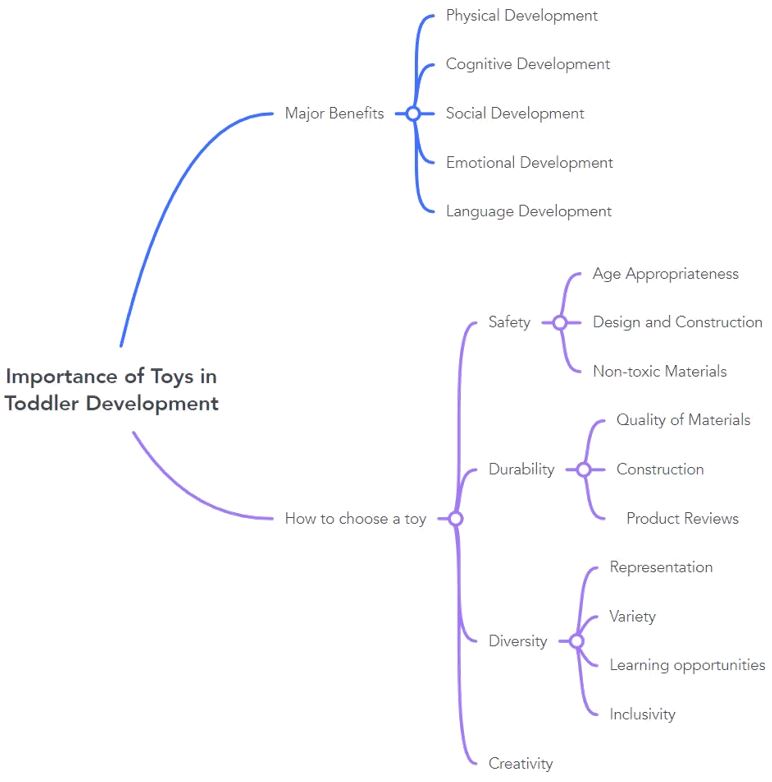
Cognitive Development
Toys are crucial for cognitive development. They help toddlers learn about the world around them, understand cause and effect, and problem-solving skills. For example, building blocks can help a toddler develop spatial awareness, hand-eye coordination, and problem-solving skills. Puzzles can teach toddlers about shapes, colors, and patterns. Toys that require matching, sorting, or categorizing can help toddlers learn about similarities and differences.
Physical Development
Toys also play an important role in physical development. Toddlers need to develop their gross and fine motor skills, and toys can provide the necessary opportunities for that. For example, riding toys like tricycles and scooters can help toddlers develop their balance, coordination, and gross motor skills. Art supplies like crayons, markers, and paints can help toddlers develop their fine motor skills and hand-eye coordination.
Social Development
Toys are also important for social development. They provide opportunities for toddlers to learn about social interaction, turn-taking, sharing, and cooperation. Dolls, stuffed animals, and action figures can help toddlers learn about empathy, emotions, and social cues. Board games and card games can help toddlers learn about turn-taking, sharing, and cooperation.
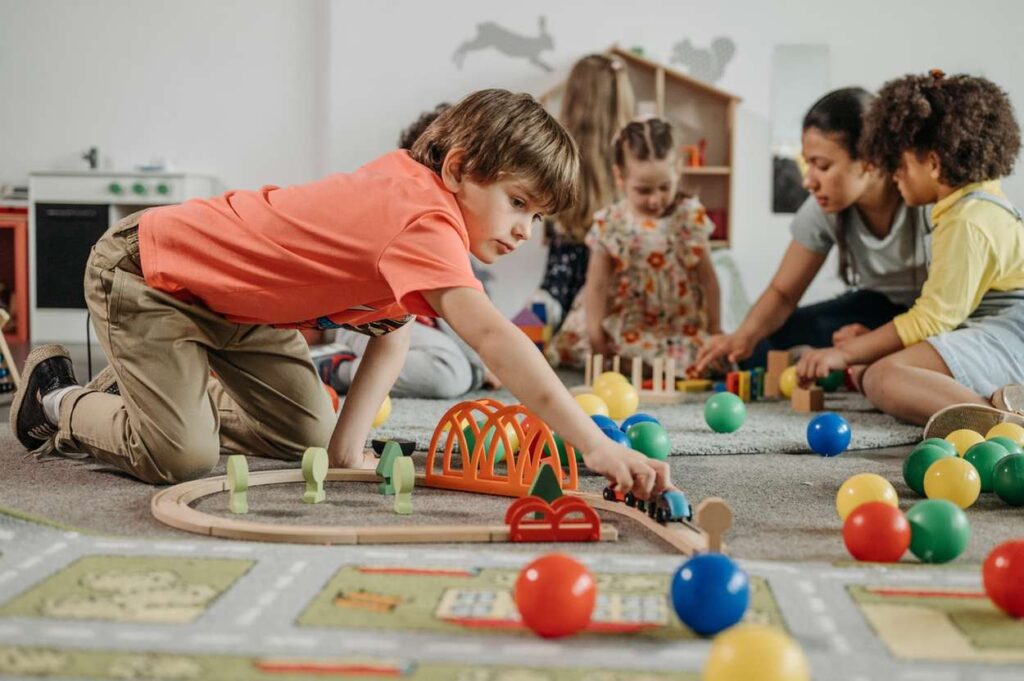
Emotional Development.
Toys can also support emotional development. They can provide comfort, security, and a sense of familiarity. For example, a stuffed animal can be a source of comfort and security for a toddler. Pretending to play with toys like dress-up clothes or play kitchens can help toddlers express their emotions and creativity.
Language Development
Toys also play an important role in language development. They provide opportunities for toddlers to learn new words, phrases, and concepts. For example, picture books can help toddlers learn about objects, animals, and people. Puppets and stuffed animals can be used to create stories and dialogue, which can help toddlers develop their language and storytelling skills. Reading books aloud to children also enhances their language development capabilities. We have a detailed article on the Advantages of Reading Aloud to Children
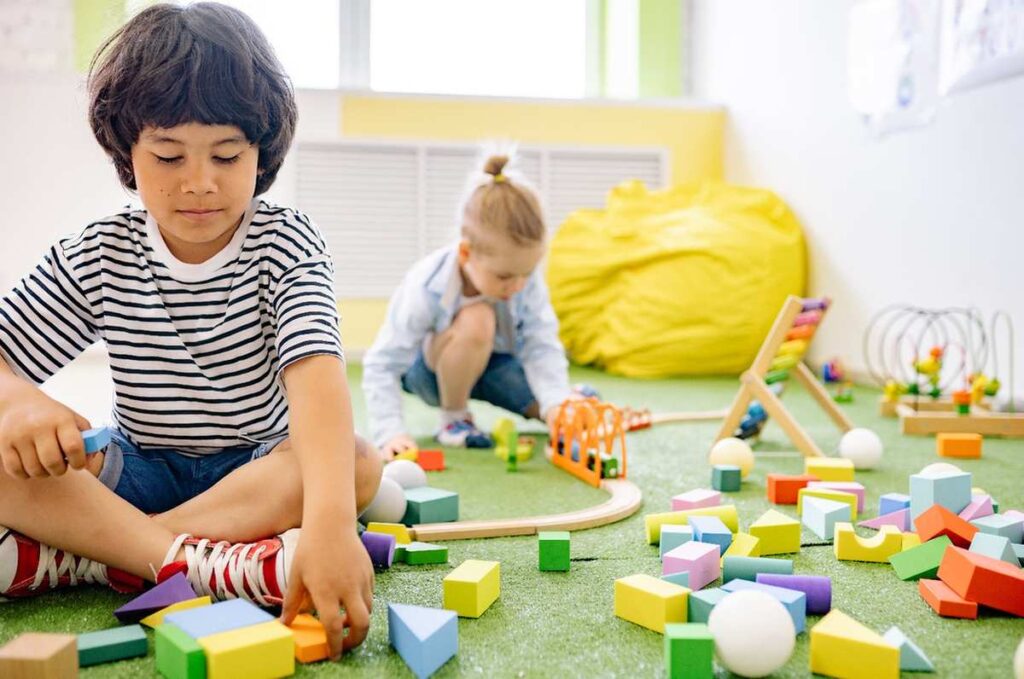
It’s important to note that not all toys are created equal. When choosing toys for your toddler, consider the following:
- Safety: Ensure the toy is safe for your child to play with. Check for small parts, sharp edges, or anything that could be a choking hazard.
- Age appropriateness: Choose toys that are appropriate for your child’s age and developmental stage. This will help to ensure that the toy is safe and suitable for your child.
- Design and construction: Make sure that the toy is well-made, with no sharp edges or small parts that could break off and be swallowed or inhaled by your child. Avoid toys with long strings or cords that could pose a strangulation hazard.
- Non-toxic materials: Check that the toy is made from non-toxic materials and does not contain harmful chemicals or substances that could be harmful to your child if ingested.
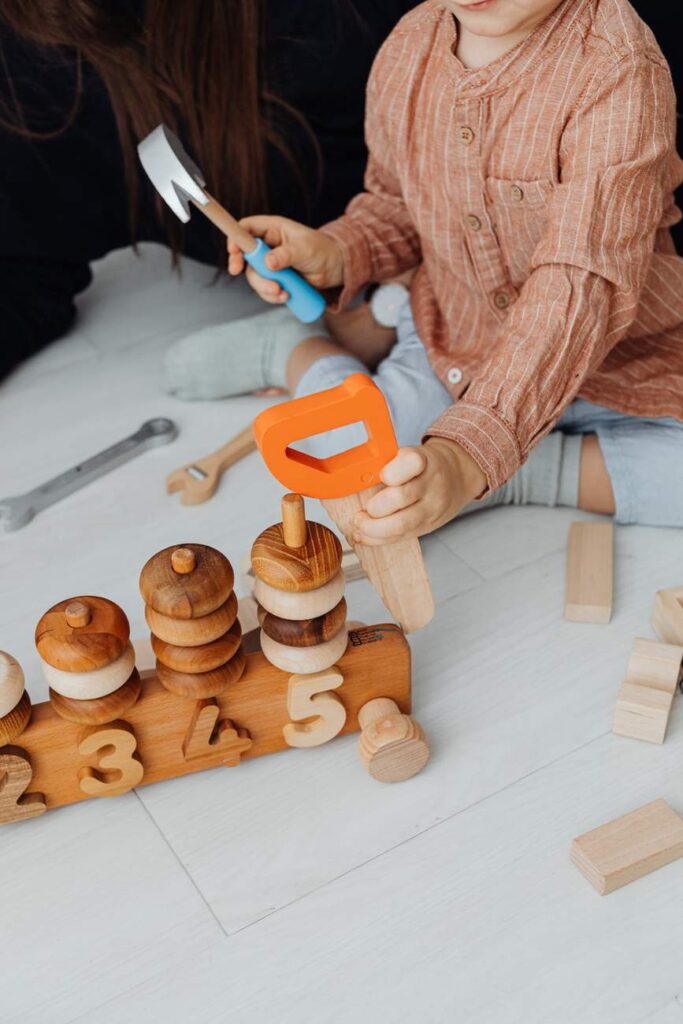
- Durability: When selecting a toy for your toddler, it’s important to consider how durable it is, as this can affect the longevity of the toy and its ability to provide long-term value for your child.
- Quality of materials: Look for toys that are made from high-quality materials that are designed to withstand the wear and tear of normal play.
- Construction: Check the construction of the toy to ensure that it is sturdy and well-made. Look for toys with securely attached parts that are less likely to break off.
- Product Reviews: Read product reviews from other parents to get an idea of the toy’s durability and how well it holds up over time.
- Diversity: Diverse toys can help promote empathy, understanding, and inclusivity in children. It can also help to break down stereotypes and encourage children to appreciate and value diversity in the world around them.
- Representation: Look for toys that represent a variety of cultures, backgrounds, and abilities. This can include toys with diverse characters, books with diverse themes, or musical toys that expose your child to different types of music.
- Variety: Offer a variety of toys to your child, including toys that challenge gender stereotypes and encourage role-playing and creativity.
- Learning opportunities: Choose toys that offer learning opportunities about different cultures, languages, and traditions.
- Inclusivity: Look for toys that are designed to be inclusive and accessible to children with disabilities.
- Creativity: Choose toys that encourage creativity and imagination.
If you wish to explore some popular toys, you can always search for the same on Youtube.
Conclusion
In conclusion, toys are critical for toddler development. They play a significant role in cognitive, physical, social, emotional, and language development. When choosing toys for your toddler, consider age-appropriateness, safety, durability, diversity, and creativity. Toys provide opportunities for toddlers to learn, grow, and explore the world around them.
What skills do toys help develop?
Toys can help children develop a wide range of skills, including:
1. Cognitive Skills
2. Motor Skills
3. Social Skills
4. Language Skills
5. Emotional Skills
Overall, toys can play an important role in a child’s development by providing opportunities for exploration, creativity, and learning in a fun and engaging way.
What is the importance of toys in developing motor skills?
Toys can play an important role in developing a child’s motor skills by providing opportunities for physical activity and practice.
1. Promotes Physical Activity
2. Enhances Hand-Eye Coordination
3. Encourages Exploration and Creativity
4. Helps Build Confidence and Self-Esteem
Overall, toys can provide children with opportunities to develop a range of motor skills in a fun and engaging way, which can have long-lasting benefits for their physical and mental health.
